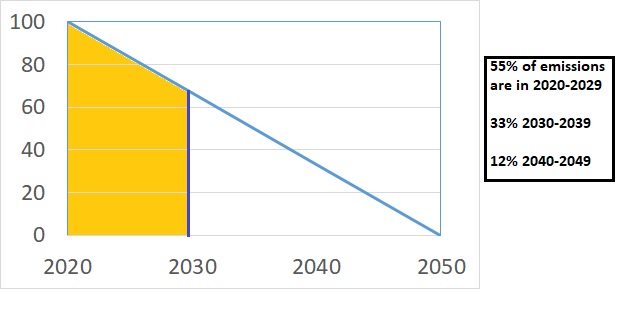The 2030 no new petrol/diesel car ban is great news, but…
Local Councils and others will use the ban to say “oh, new road building is fine now”, “we don’t need to bother with traffic levels - electric cars will save the day”.
THREAD (1/5)
Local Councils and others will use the ban to say “oh, new road building is fine now”, “we don’t need to bother with traffic levels - electric cars will save the day”.
THREAD (1/5)
But it’s total emissions over time, not the zero-emissions end point, which determine how much global temperature rises
So it’s the area under the curve that matters, and the most important area by far is the next 10 years.
(2/5)
So it’s the area under the curve that matters, and the most important area by far is the next 10 years.
(2/5)
Electric cars will help with that, a lot, but there are 40 million vehicles on the road, and around 2.5 million new cars a year, so existing petrol/diesel cars will dominate the next decade, so….
(3/5)
(3/5)
We also need stronger policy to:
•Reduce the need to travel
•Switch from cars to walking, cycling, buses and trains
•Get more efficient petrol/diesel cars (a *lot* of gas-guzzling monsters will get sold in the next 10 years)
(4/5)
•Reduce the need to travel
•Switch from cars to walking, cycling, buses and trains
•Get more efficient petrol/diesel cars (a *lot* of gas-guzzling monsters will get sold in the next 10 years)
(4/5)
This is the same story in other transport sectors: yes, we need zero-emission tech, but we also HAVE to focus on cutting emissions from EXISTING ships, planes and lorries in this decade.
See @tyndallManc research for what this means for ships: https://rdcu.be/b4QUS (5/5)
See @tyndallManc research for what this means for ships: https://rdcu.be/b4QUS (5/5)

 Read on Twitter
Read on Twitter


